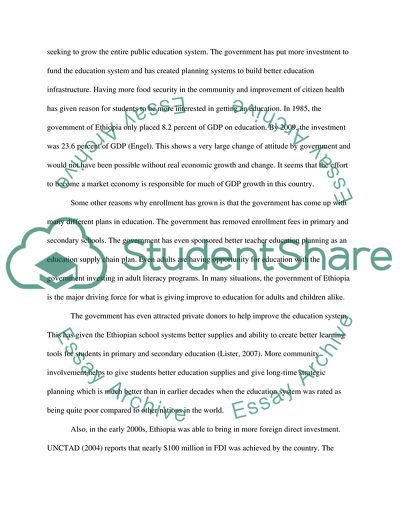Cite this document
(Assessing Ethiopias Development in the Education System Research Paper, n.d.)
Assessing Ethiopias Development in the Education System Research Paper. Retrieved from https://studentshare.org/education/1881590-an-assessment-of-whether-the-education-system-is-making-progress-toward-development-or-not-in-ethiopia
Assessing Ethiopias Development in the Education System Research Paper. Retrieved from https://studentshare.org/education/1881590-an-assessment-of-whether-the-education-system-is-making-progress-toward-development-or-not-in-ethiopia
(Assessing Ethiopias Development in the Education System Research Paper)
Assessing Ethiopias Development in the Education System Research Paper. https://studentshare.org/education/1881590-an-assessment-of-whether-the-education-system-is-making-progress-toward-development-or-not-in-ethiopia.
Assessing Ethiopias Development in the Education System Research Paper. https://studentshare.org/education/1881590-an-assessment-of-whether-the-education-system-is-making-progress-toward-development-or-not-in-ethiopia.
“Assessing Ethiopias Development in the Education System Research Paper”, n.d. https://studentshare.org/education/1881590-an-assessment-of-whether-the-education-system-is-making-progress-toward-development-or-not-in-ethiopia.


